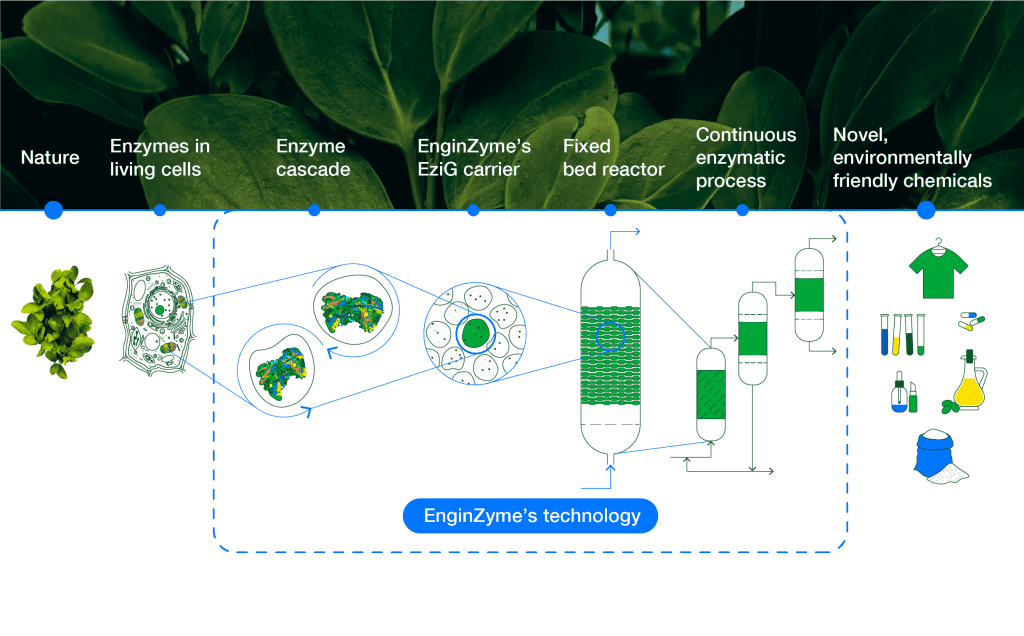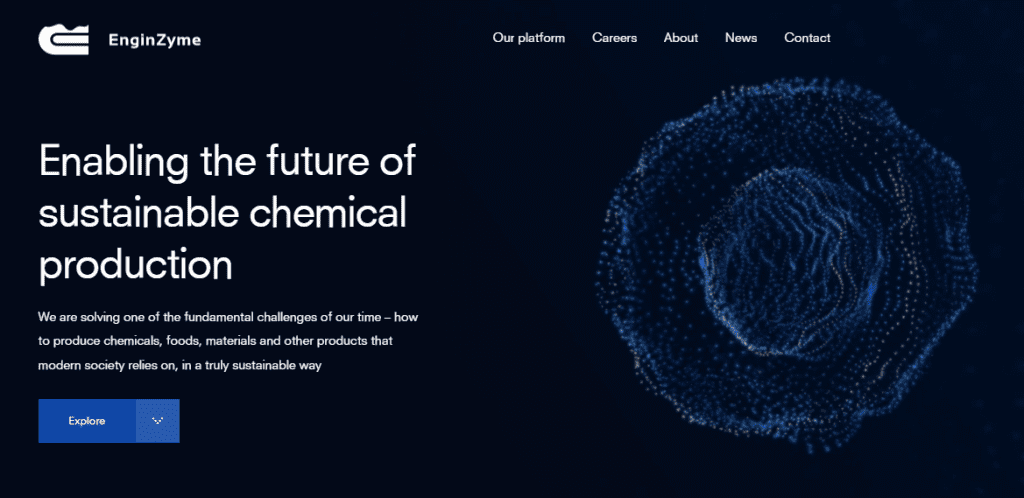The Stockholm-based biotechnology business EnginZyme, which develops biomanufacturing techniques for the ethical manufacture of everyday items, said last December 19, 2022 that it has raised $22 million in a Series B round of funding.
Almi Invest GreenTech, Navigare Ventures, and Bunge Ventures, three new investors, made the investment. Additionally investing in this round were previous investors Sofinnova Partners, Industrifonden, and SEB GreenTech VC.
By reducing carbon footprint and climate effect, EnginZyme offers a distinctive and environmentally friendly solution that has the potential to move the chemical industry toward sustainability on a big scale and in a profitable way. Helen Taflin, Investment Manager of Almi Invest GreenTech, stressed this.
Green Chemistry and Biomanufacturing Sustainability
Since the output of chemicals would have to treble by 2050 to meet the rising demand, the chemical sector is in a precarious position. But for the sector to succeed in sustainability, greenhouse gas emissions must be reduced by more than 50%. In order for modern society to function correctly, it is also necessary to find ways to produce all types of products sustainably, including fuel, flavorants, plastics, medicines, food products, and cosmetics.
The methods utilized to produce chemicals today are not sustainable due to the quantity of waste and energy they use. Petroleum is mostly used as a feedstock for chemical manufacturing, and it is catalyzed using high heat, pressure, and metals. The heat generated during these operations wastes energy, and a lot of physical waste is produced that is costlier to manage.
The efficiency of nature is really high, claims EnginZyme. Because they mimic what nature does, many green chemical businesses use biomimetic methods. Enzymes are the main catalysts used by cells to manufacture the chemicals necessary for life in the natural world. However, employing living cells to make chemicals or change goods in an industrial setting can be a delicate, unpredictable process that calls for a bioreactor, a specially designed environment.
Here is where EnginZyme hopes to contribute. The company develops biomimetic processes, but instead of using living cells, it employs an unique technique that enables them to make use of enzymes in a manner akin to how the standard chemical industry employs catalysts, but under much milder, less demanding conditions.
Mobilization of Funds for Transition Acceleration
By enabling green chemistry for every industry, EnginZyme, the company founded in 2014 by Karim Engelmark Cassimjee and Samuel Hargestam, hopes to play a significant role in combating climate change. By replacing conventional production with the patented cell-free technology platform, the company hopes to hasten the transition to sustainable bio-manufacturing of items that are necessary for contemporary society.
According to EnginZyme, the resources will be used to achieve its goals for extensive global commercialization as well as to create new features for its technology platform that will enhance performance and allow scalability in both current and future markets.
For EnginZyme, this fundraising represents a turning point. In order to combat climate change, Cassimjee acknowledges that the idea for EnginZyme originated at The Royal Institute of Technology in Stockholm. This enabled greener chemistry for every industry. A company at the nexus of chemical engineering and biology was developed thanks to the startup idea, which attracted a number of seasoned investors. Today’s EnginZyme stakeholders are incredibly happy to have a reputable syndicate of investors backing them as the business enters its next phase of development.
Building the Foundation for the 21st Century Chemical Industry
EnginZyme is a Swedish startup with the vision to make the chemical industry green by unlocking the potential in enzymes. Its cell-free biomanufacturing platform was developed using an industry-leading methodology that blends the scope and strength of biology with the productivity of the chemical sector. The firm aims to play a significant part in addressing one of the fundamental problems of our day – how to manufacture better, greener, and less expensive items that we use every day – by swapping out conventional fossil-based production with a cell-free technological platform.
Due to its cutting-edge technology, EnginZyme is in a unique position to tackle many of the problems that the chemical industry is currently facing. In particular, EnginZyme wants to play a significant role in combating climate change, both by accelerating the industry’s transition to sustainability and by developing unique chemical products that solve problems for other industries. The business, which was backed by well-known investors, employs some of the top researchers in each of their specialties and has been named a Technology Pioneer by the World Economic Forum.
Subscribe
to get our
LATEST NEWS
Related Posts

Biomanufacturing
Biosimilars: The Science Behind an Affordable Pathway to Biologics
As biosimilars become more common, regulatory agencies are updating their guidelines to keep pace with advancements in their technology and uses.

Biomanufacturing
Biotechnology’s Transformative Impact on Sustainable Development
Rooted in the transition from fossil fuels to renewable resources, the integrated bioeconomy promises a sustainable future.
Read More Articles
Myosin’s Molecular Toggle: How Dimerization of the Globular Tail Domain Controls the Motor Function of Myo5a
Myo5a exists in either an inhibited, triangulated rest or an extended, motile activation, each conformation dictated by the interplay between the GTD and its surroundings.
Designing Better Sugar Stoppers: Engineering Selective α-Glucosidase Inhibitors via Fragment-Based Dynamic Chemistry
One of the most pressing challenges in anti-diabetic therapy is reducing the unpleasant and often debilitating gastrointestinal side effects that accompany α-amylase inhibition.
















